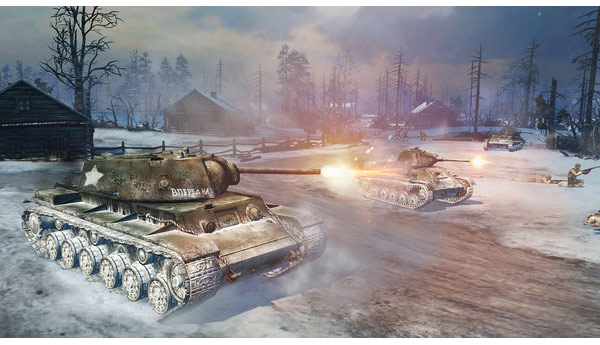


Duffy admits that he was surprised to go back to the first game and discover that most of the events of Company of Heroes - from the D-Day landings and onwards - covered just four months out of a six-year war. The Essence 3.0 engine is new for the game, and is already offering stunning battlefields. It's looking past the gritted glamour of Normandy to the mass-murder taking place on the Eastern Front. Instead, Relic's shifting the focus to a different theatre of the same war. For the RTS series' long-awaited sequel, the developers aren't reinventing or re-engineering from the ground up, and they aren't moving the game into an entirely new time period, laying on space marines or medieval trebuchets. That one-in-seven stat came to England recently in the PowerPoint presentation of Quinn Duffy, the game director of Company of Heroes 2. Was it triumphant? That really depends on the degree of elasticity you're willing to lend the word. Russia endured because endurance was another talent. Russia overwhelmed with numbers: with the sheer quantity of its often unskilled, frequently unarmed soldiers, and with the bizarre scale of the landscape its enemies would have to conquer. That offers some kind of insight, doesn't it? That allows you a decent handle on the fate of a nation blessed with such a talent for suffering that its strategy - for much of the early fighting at least - appears to have been to lose and lose and lose again, until there was nobody left standing for them to lose to any more. Let's limit ourselves to just a single detail, then: one in seven Soviet citizens died in the course of the conflict. There are so many insane statistics about Russia's losses in World War II that the mind starts to bounce off them after a little while.


 0 kommentar(er)
0 kommentar(er)
